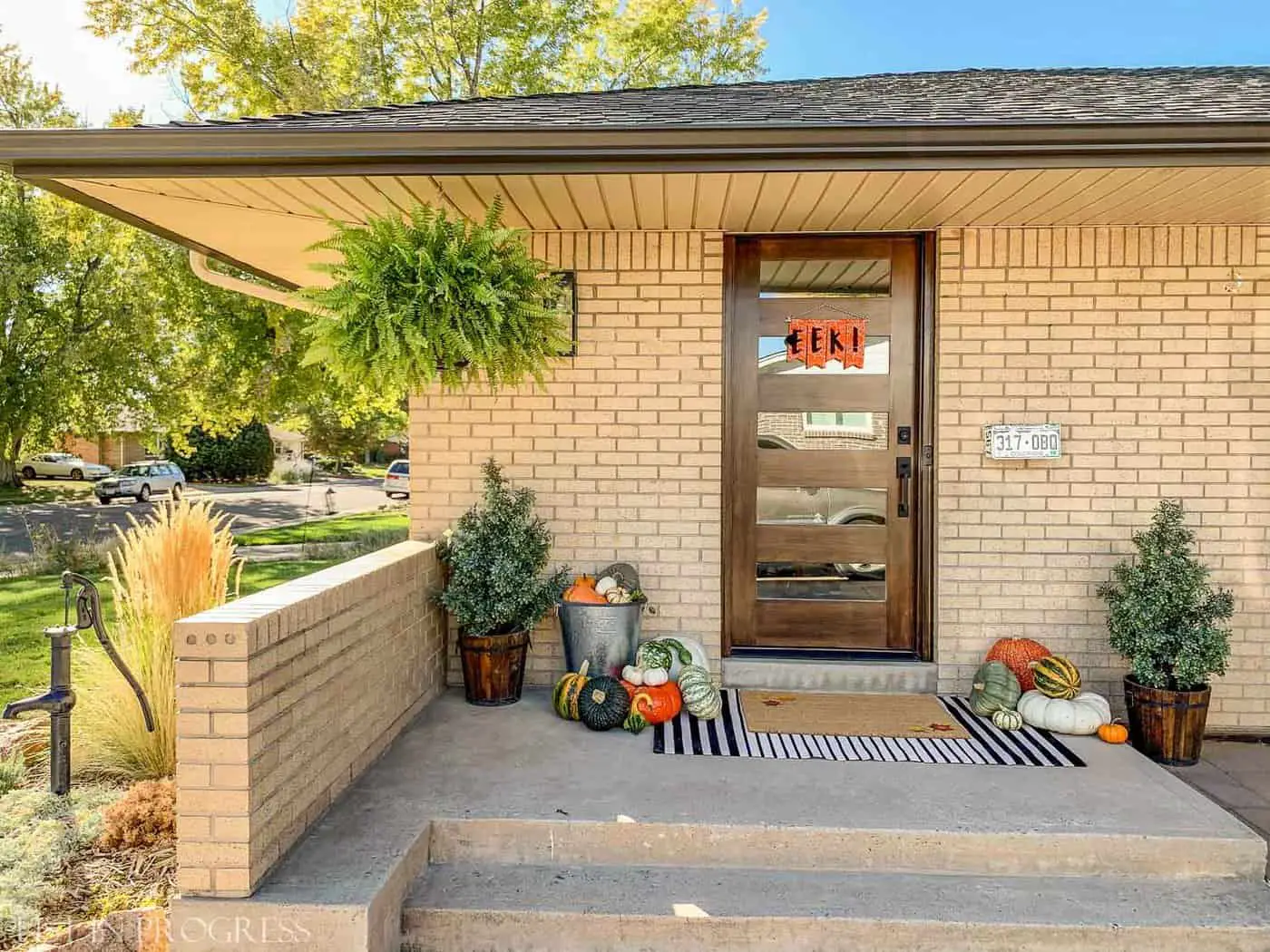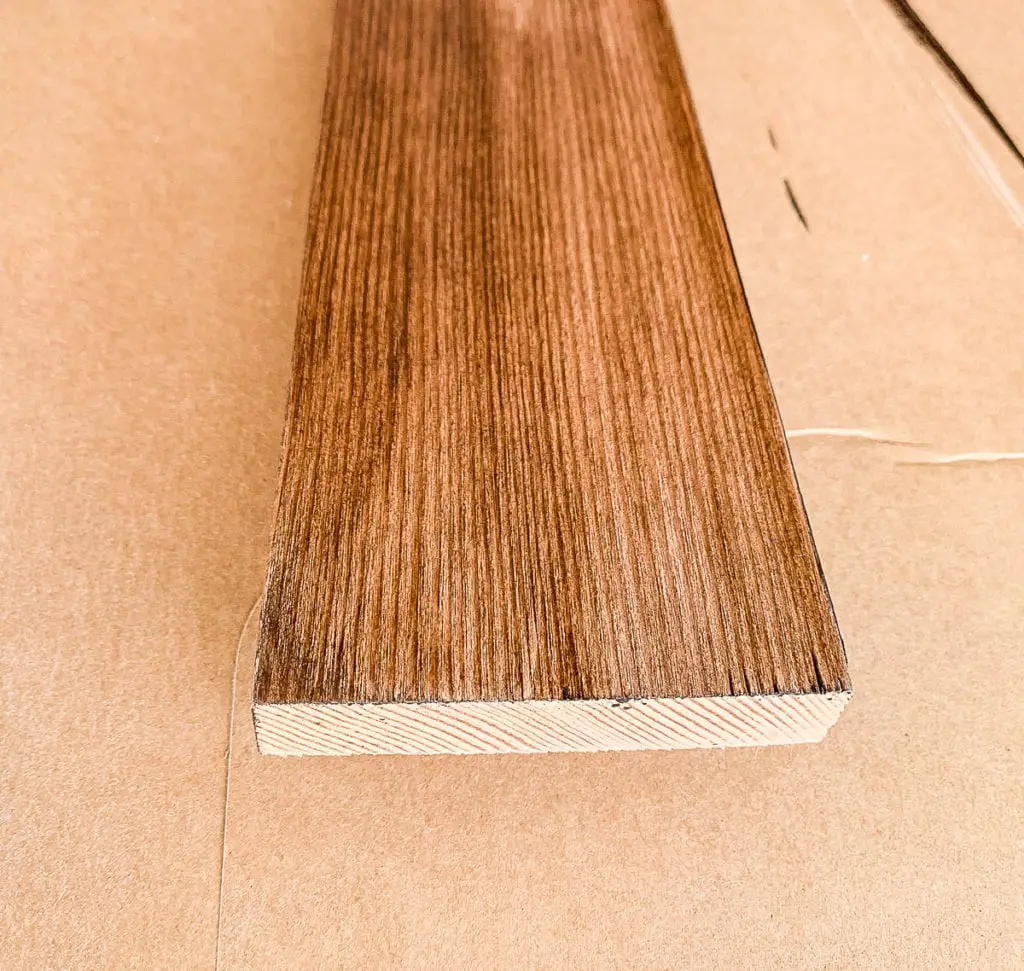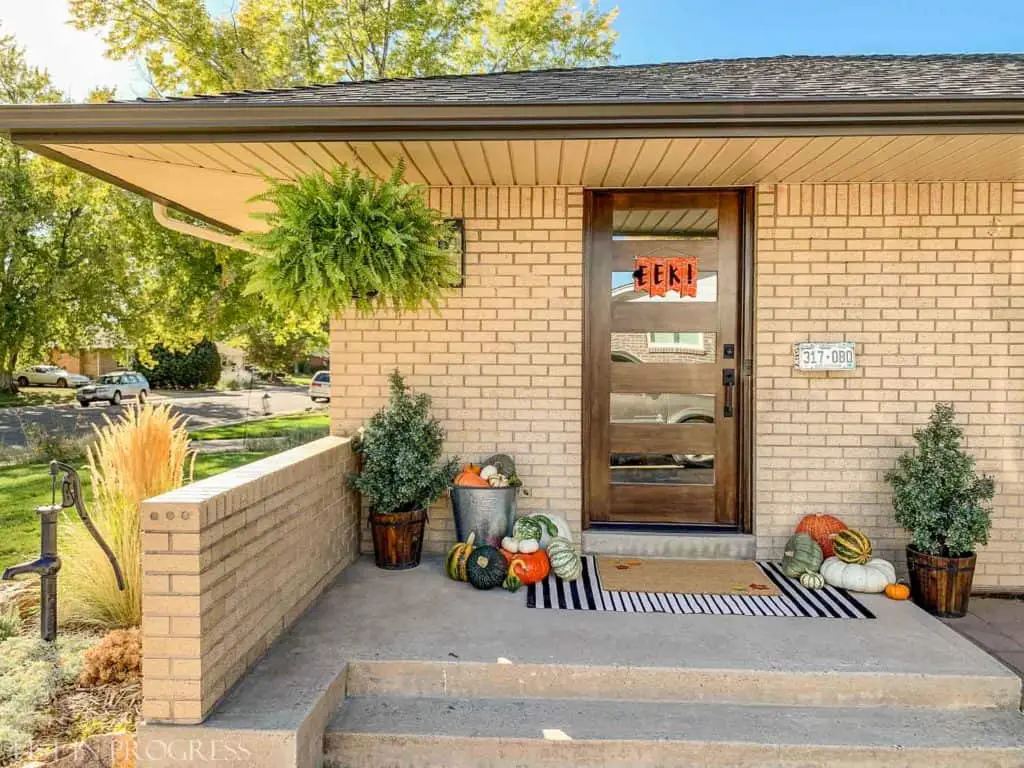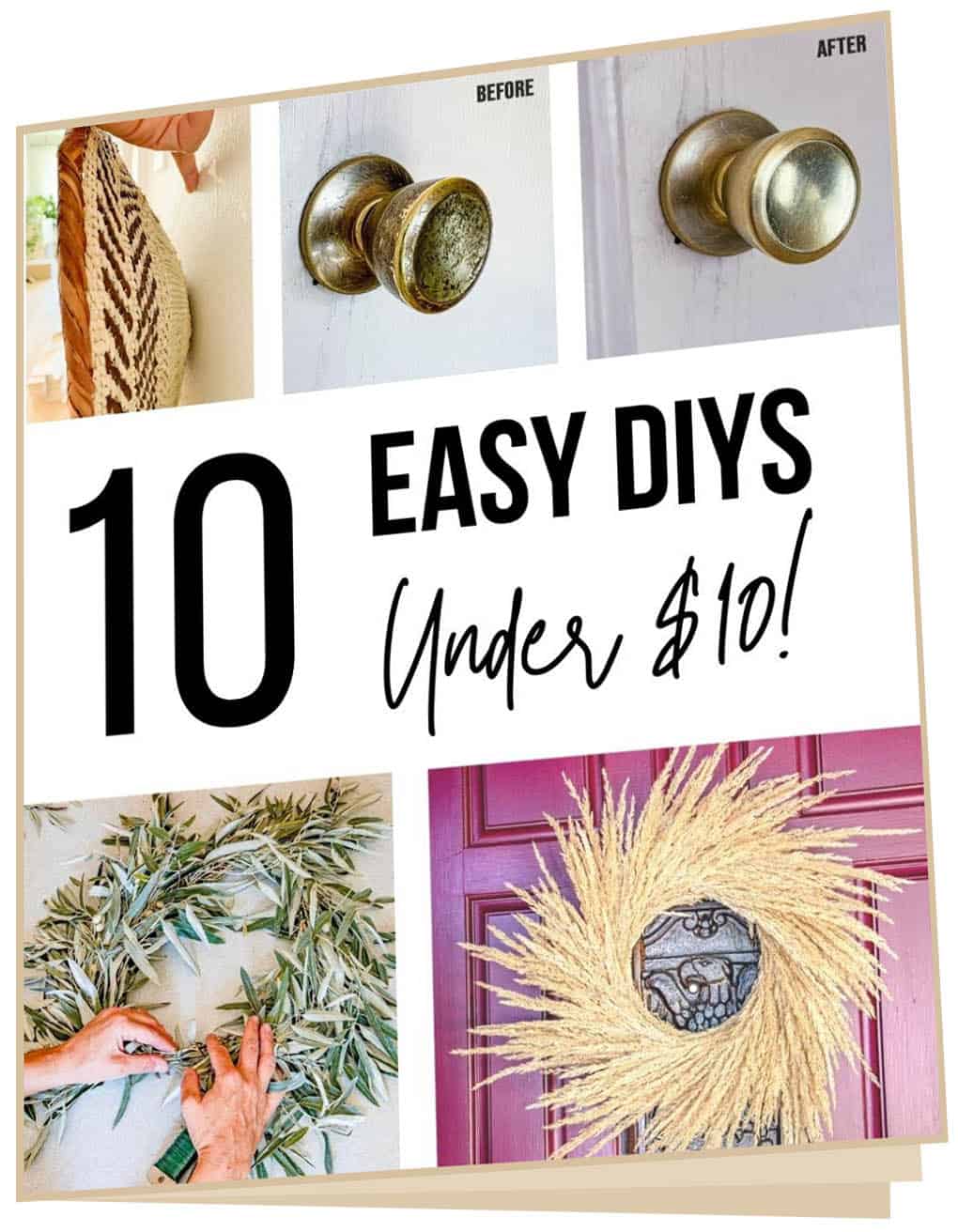If you’ve ever shopped for a new front door, you might have discovered that there’s a world of options. Door choices are not always obvious online and it takes some legwork to investigate. I researched this purchase for our upcoming entryway remodel, and here’s what I’ve learned, from sources to cost.
This post contains affiliate links. If you click through and purchase something, I may receive a small commission. Thanks for supporting my blog!
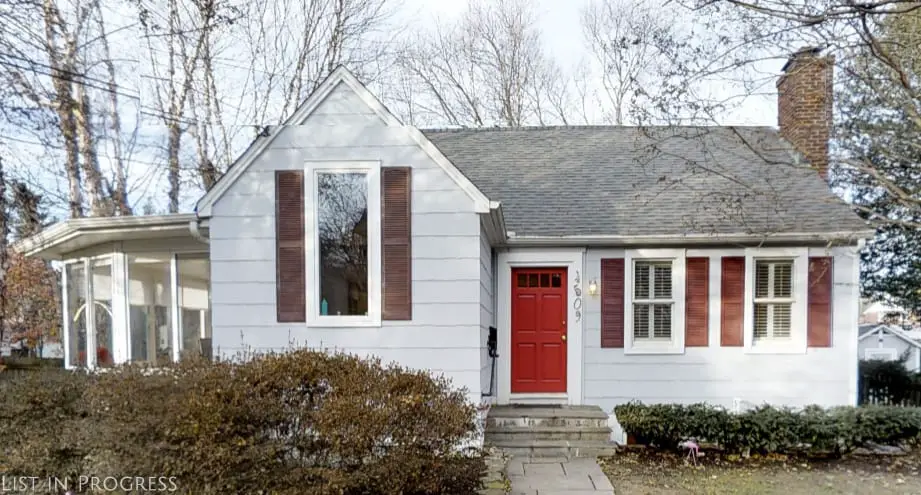
Choose a New Front Door Material First
A beautiful front door can really boost your curb appeal, so I believe it’s worth the investment to upgrade, as your budget allows. Start your research online at one of the big box hardware stores, to get a sense of the primary materials and styles. Doors mainly come in three materials – wood, fiberglass, or steel. (Also iron, but those are crazy expensive for my budget.) There are pros and cons to each material, so this is a good place to begin. Here’s a quick overview:
- Fiberglass – affordable, low-maintenance, energy-efficient and durable (but less stylish?)
- Steel – most affordable, low-maintenance, and strongest (but easy to dent)
- Wood – different species options, beautiful, and strong (but most expensive and needs maintenance)
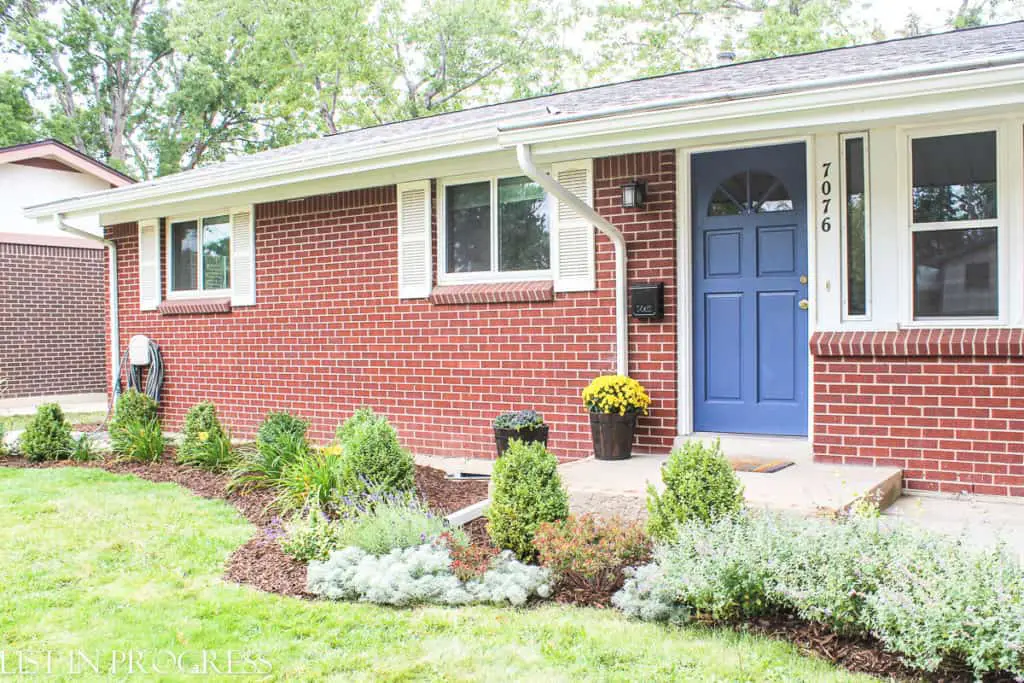
As you’re browsing, here’s a tip: measure your current door and shop for the same size. Our current front door measures 36″ wide x 79 3/4″ tall, so I look for the standard size 36 x 80. If you’re far from a standard size, you’ll have to shop for a custom door.
Decide on the Style for Your New Front Door
The most popular door styles these days are Craftsman, mid-century modern, traditional, rustic, and modern. If your home does not fall neatly into one of those categories, or you’re struggling to choose a style you like, I suggest looking through Pinterest for ideas. You might also find inspiration on your next walk around the block.
In our neighborhood of brick, ranch-style homes, owners have installed all kinds of new front doors. Some houses look great with mid-century modern doors in bold colors, and others opt for traditional styles. Here are few that have been recently updated:
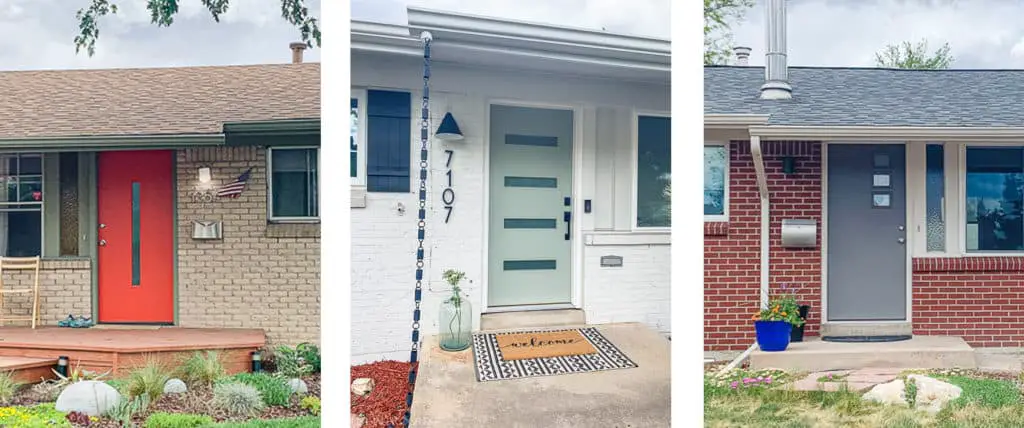
I love the sleek look of these doors, as well as a fun pop of color. However, while researching our options, I discovered 5-lite wood doors, and I haven’t looked back. 5-lite just means a series of 5 horizontal glass panels, running from top to bottom; there are also 3-lite, 4-lite, 10-lite, etc. Here is a rough mockup of my vision for this stained-wood door on our house:
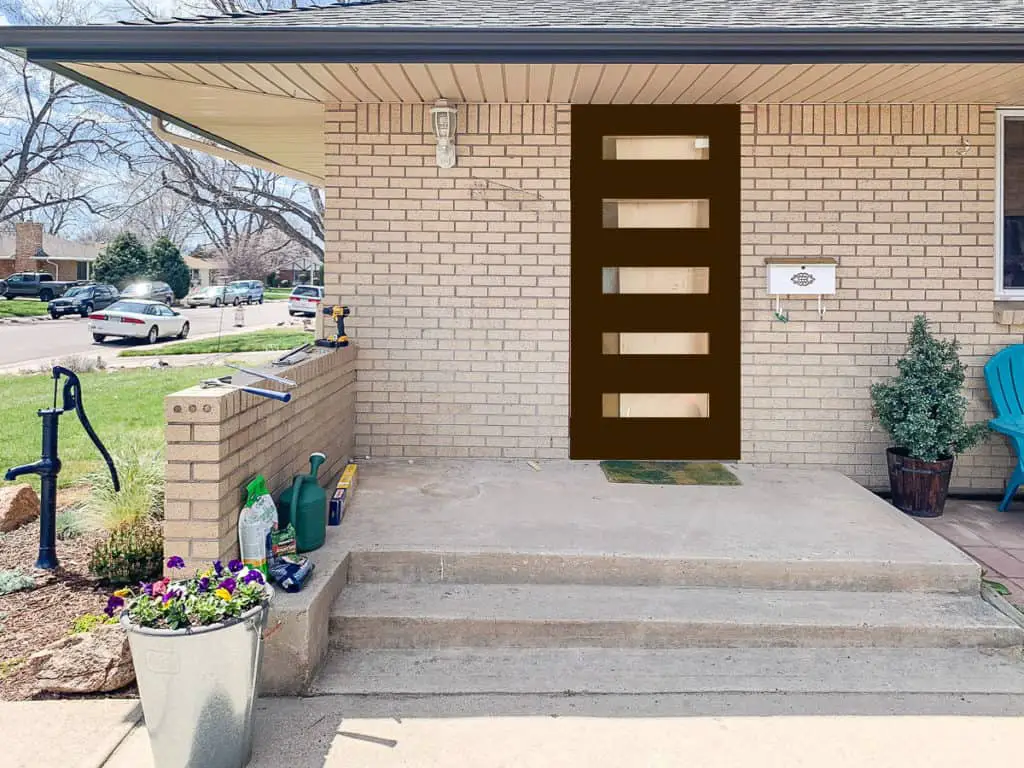
Research Alternatives at Local Shops
I searched the big hardware stores for a 5-lite wood door, but I struck out. Fortunately, this was a few months ago, when I felt more comfortable shopping in person and could visit local door stores, because that’s the next step. If you can’t locate the new front door you want online, or at a big hardware store, you should try checking your local specialty door stores. These stores are “next level” and carry different lines than those you’ll find at the big box stores. For example, Simpson makes beautiful doors but is only available at specialty door retailers. I found my 5-lite, Douglas fir, dream door by visiting a shop, seeing the door in person, and comparing it to other choices in the Simpson catalog.
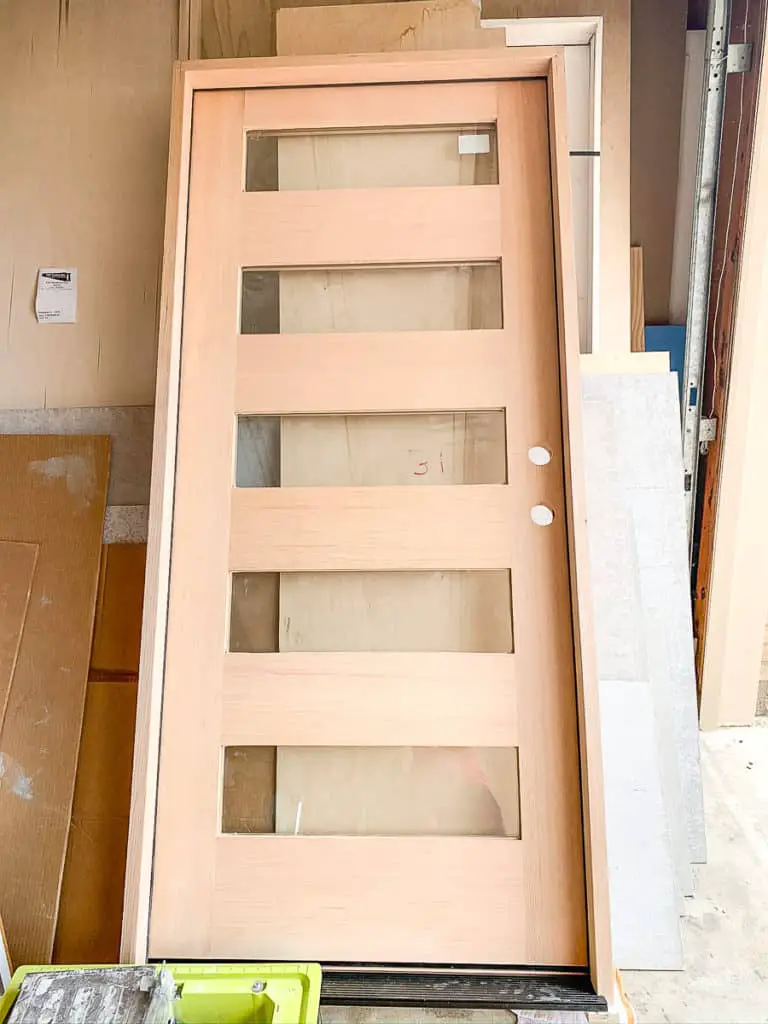
Once you have a specific door in mind, then you can call around to find the best deal. It’s easy to get quotes with a phone call, and I really encourage you to compare prices. My quotes ranged from $2400 to $1010 for the same door!
Sometimes these retailers are called trim stores, so don’t be afraid to call and ask if they can order your door. They might not have a showroom of products, but if they can order your door and build the frame, you’re all set. I found a better deal by buying our door from a trim store, rather than a well-advertised door retailer.
Choose the Additional Features/Finishing
To order a new front door, you’ll need to know a few specs about your house and installation situation. Typically, door companies order doors from the lines they carry, like Simpson or Pella. Then, they build the jamb (frame) on-site to match your order specifications. One of the first questions you’ll get is about swing, so determine the swing of your door in advance. Here’s a helpful graphic:
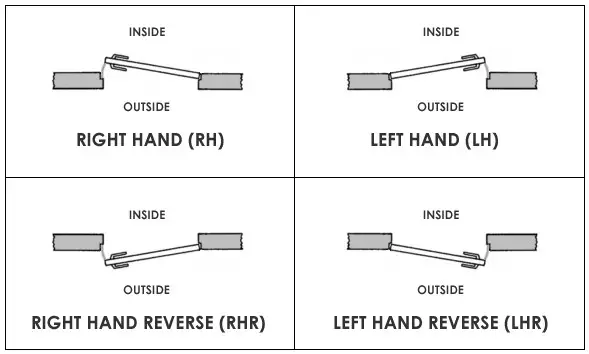
Next, measure the jamb width, which means, figure out if your exterior walls are built with 2×4’s or 2×6’s. You’ll need this measurement so the door frame is constructed to match. Here is a graphic to show how jamb size is smaller than the full width of your exterior wall. If the jamb is about 4-6″, you have 2×4 walls, but if the jamb measurement is closer to 8″, you likely have 2×6 walls.
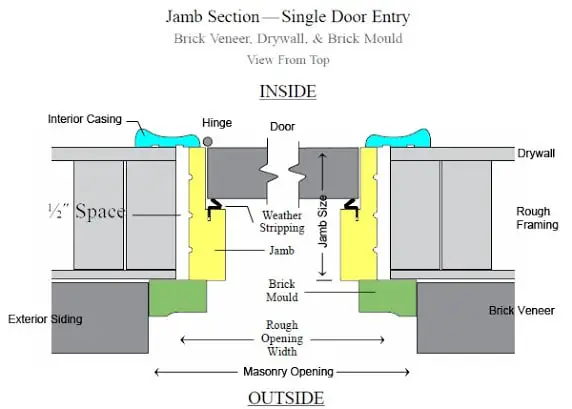
If you’re buying a wood door, decide whether you plan to stain or paint the jamb to match. We are staining our new door, so we ordered a stain-grade jamb. Stain-grade means that it’s a slightly higher quality wood, since you’ll be able to see the wood grain through the stain. The price difference was $100 more than a paint-grade jamb, for our door size.
Speaking of stain, decide if you’ll DIY the finish or pay the retailer to complete that work. I plan to stain our door and jamb, so we ordered an unfinished fir door. I’ve been practicing my stain technique on a scrap piece of fir from the same trim shop, so I’ll be ready to tackle our new door once it’s installed.
Decide on the hinge color, because you’ll probably have options. I chose matte black hinges to match the other hardware in our house.
Plan for Installation of the New Front Door
Will you install the door yourself or hire it out? Some door retailers will offer additional delivery and installation services, if you need them. We opted to pick up the door and will install it ourselves, so we’ve saved some money on that labor cost.
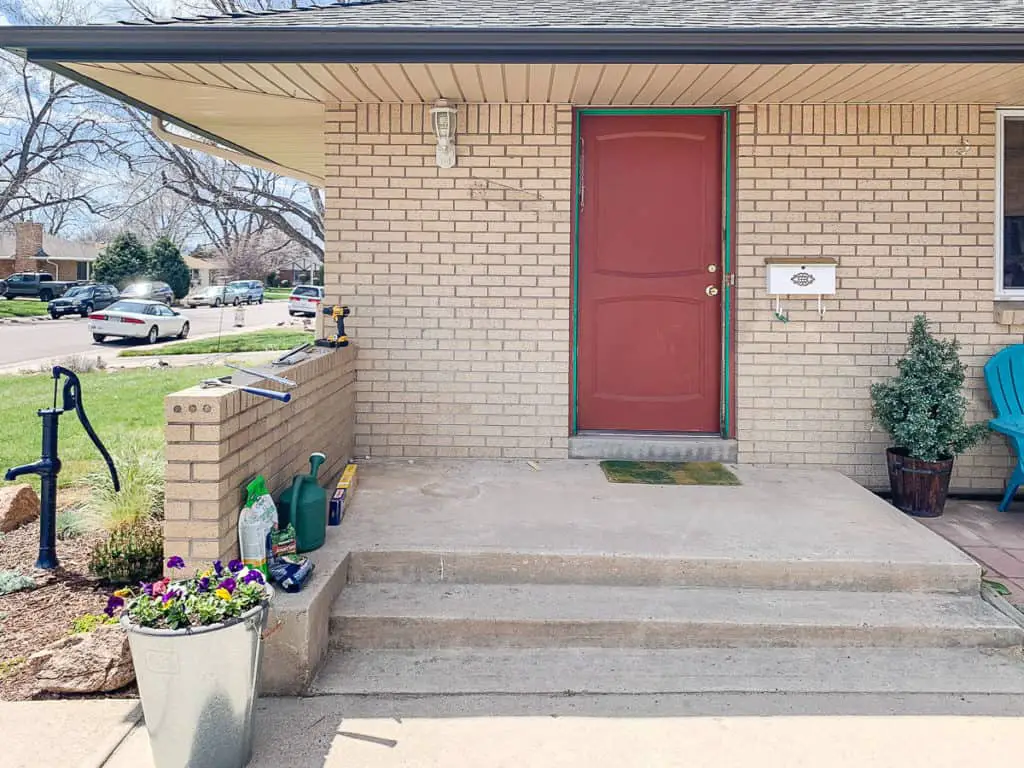
Last Step: Have Hardware On Site For Installation
While you’re researching and buying a new door, don’t forget to order the coordinating hardware. This is especially important, since your front door is a security feature. I know, it seems so obvious, but you won’t want to delay installation simply because you forgot to buy a lock. Here are the items to research and buy in advance:
Handleset – This can be as elaborate or as simple as you wish. We ordered this handleset to coordinate with the black hardware on our interior doors. Some lines can mix and match the exterior and interior components, so I shopped around until I found this combination from Schlage. I like this exterior handleset with the modern lines on the front door, and the interior door lever matches our other interior hardware.
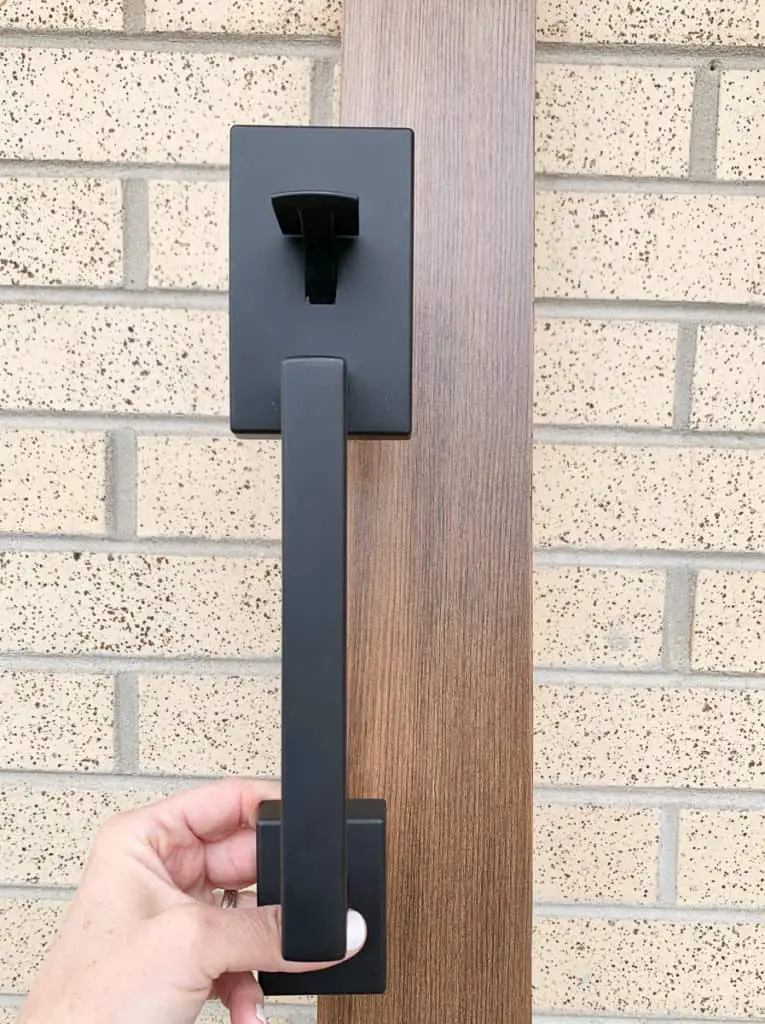
Deadbolt – If your handleset doesn’t come with a deadbolt, you’ll probably want to buy one.
Doorbell – In our case, the doorbell is incorporated in the jamb. Since we’re replacing the jamb, I need the doorbell on hand before the work begins. After much debate, I bought this new doorbell to coordinate with the other black hardware. (This was a fun post to compile on doorbells and doorknockers, which I researched last month. Everyone loved the bee bell, including me, but I discovered that the size info was incorrect online! It’s too big for our doorjamb. So sad…)
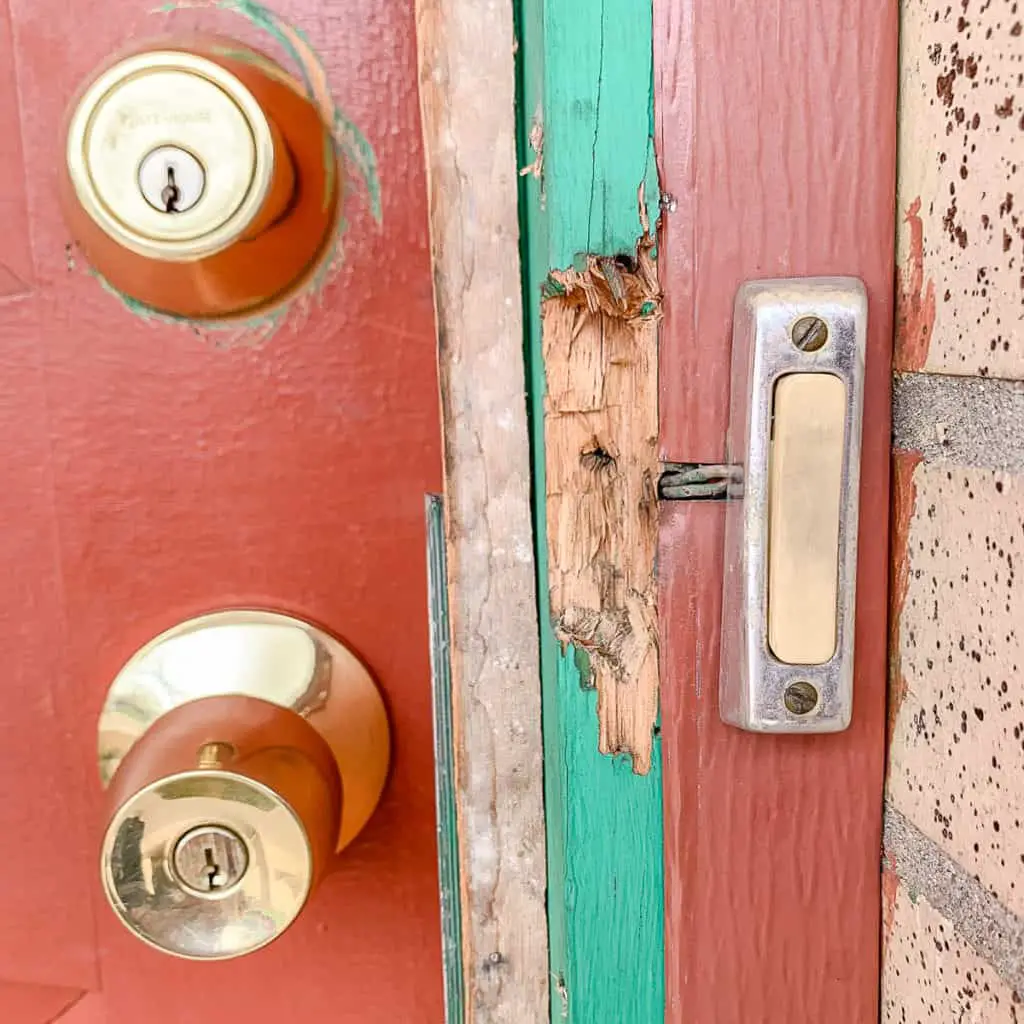
Update 11/8/20 – Here’s Our New Front Door!
We finally stained and installed the new door, after a summer filled with other projects. Read all about it:
> Tips to Install and Stain a New Front Door <
In the meantime, I hope this has been a useful read, if you’re planning to replace your front door. As you can see, there is a fair amount of research that goes into it. Good luck!
Plus, here is the coolest door I’ve ever seen… This is on a downtown street in Waco, TX:
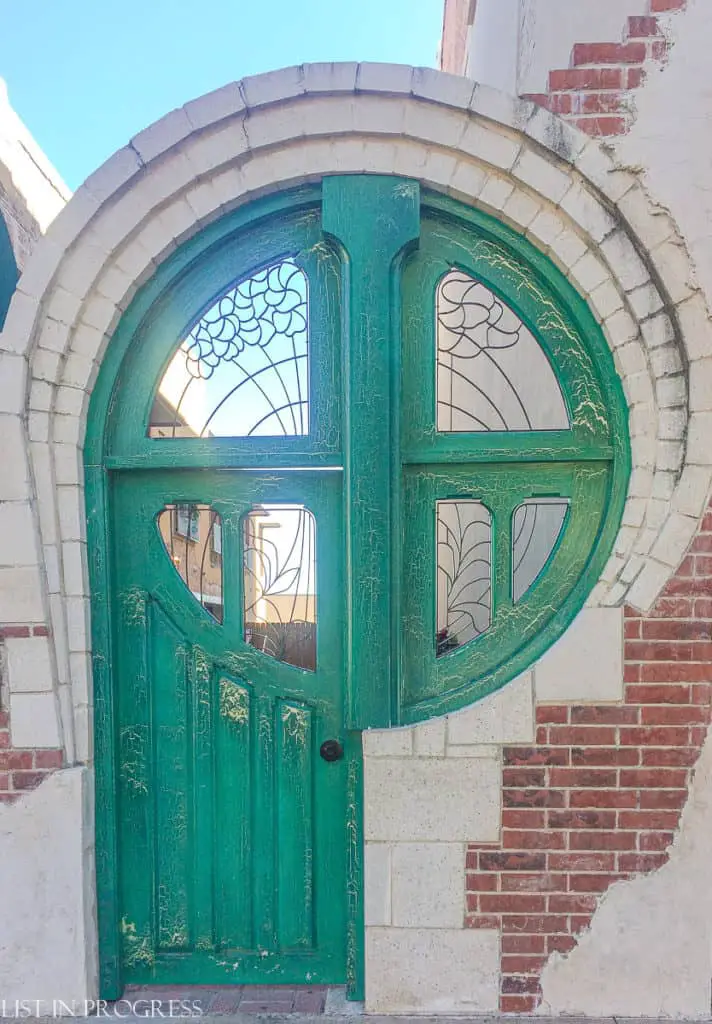
Want to Read More About Curb Appeal? You Might Like:
Our Hip New Roof
45 Beautiful Outdoor Rugs for Your Home
28 Doorbells and Door Knockers to Update Your Entry
Installing a House Number Plaque
Subscribe and never miss a post!
I currently email 2-3 times per week. Sign up if you’d like DIY project info, product tips and tricks, and a weekly post of fun links to explore.
[mc4wp_form id=”402″]



